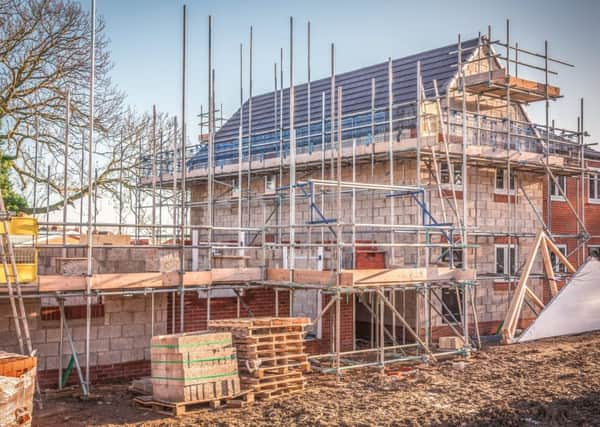Brian Monteith: Why plan to give millennials £10k each doesn't work


The Resolution Foundation, one of these think tanks that are full of the great and the good who know better than us all, set up an “Intergenerational Commission” to look at what it calls the broken social contract between baby-boomers and millennials. For those not used to all the policy-wonk political jargon, that mean’s those of us born between 1946-1965 and those born between 1981 and 2000. (Hard cheese by the way for those born between 1966 and 1980 – you obviously don’t matter to the do-gooders.)
Apparently, the thinking is that if everyone aged 25 is given £10,000, they will be able to use it to buy properties that at the moment they cannot afford. This sort of thinking would not get you a pass in school economics.
Advertisement
Hide AdAdvertisement
Hide AdGiving people money to buy properties will simply create greater demand. With house building still way behind what the country needs, the greater demand together with the existing scarcity will force house prices up (especially at the lower end of the market) – immediately wiping out the £10,000 gain the millennials thought they had and handing it over to the owners of the properties, who are in the main the baby-boomers.
So it would not solve intergenerational envy or victimhood, it would actually redistribute taxpayers’ money to the baby-boomers (via the hands of the millennials) through rising house values and the selling of those houses. You really could not make up such a daft idea that does exactly the opposite of what it intends. And this “think tank” is meant to be influential?! God help us.
(Also, it wouldn’t strictly be taxpayers’ money because, with public borrowing currently at £46,000,000,000 a year, there is no spare cash. It would have to be borrowed, with the millennials and their children picking up the interest for the rest of their lives, whether they buy a house or not).
We baby-boomers have done well because, in the main, we worked hard and improved our productivity, used our earnings to buy houses (often a council house), saved for a rainy day and invested in a pension. We need to be congratulated for making a success of our lives and doing it mostly without university degrees, early access to cars or easy foreign travel.
Advertisement
Hide AdAdvertisement
Hide AdBy contrast, millennials have never had it so good – it may not feel like that but the statistics bear this out. More than ever go on to tertiary education and get degrees, they earn larger salaries, have more disposable income, longer life expectancy, are more likely to have a car and travel internationally, often going away for a gap year between school and university of college. The only gaps I had were in my teeth.
The problem of the high entry cost of buying property is very simple, the lack of housing, especially a lack of housing in places where people want to live. The reason for this is because local authorities ration new housing and too many people don’t want any built near them.
I’ve seen it in countless small and attractive towns across Scotland such as Dunblane and Peebles where locals, who over the last 30 years have moved there from other locations, want to stop further housing development. Ironically this just makes it difficult for their own sons and daughters to get on the property ladder due to lack of availability and higher prices of the existing stock.
We don’t need to give 25-year-olds £10,000 – we need to build more houses, we need to build new garden towns and suburbs too and we need to get on with it. Then the millennials can use their advantages to benefit themselves and their future families.
